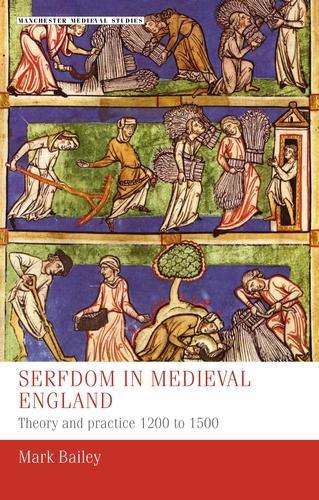
Serfdom in Medieval England: Theory and Practice 1200 to 1500
(Hardback)
Publishing Details
Serfdom in Medieval England: Theory and Practice 1200 to 1500
By (Author) Mark Bailey
Manchester University Press
Manchester University Press
4th March 2026
United Kingdom
Classifications
General
Non Fiction
Social and cultural history
Economic history
Legal history
Sociology: work and labour
Physical Properties
Hardback
432
Width 138mm, Height 216mm
Description
Serfdom was a coercive relationship between a landowner and peasant, which was widespread across medieval and early modern Europe. Itfeatures prominently in major historical debates, such as the origins of capitalism and the divergent pathways of western and eastern Europe to modernity. Scholars have paid particular attention to English serfdom, which is usually portrayed as highly oppressive and a major cause of the Peasants' Revolt in 1381.
This comprehensive survey draws on a vast scholarship and new research to show how, in reality, English serfdom was weak, casting new light on the nature of its society and economy when the Black Death struck in 1348-9. The pandemicnow assumesa central role in the rapid decline of serfdom, as illustrated in a case study of the estate of one of England's harshest landowners, St Albans abbey.
Author Bio
Mark Bailey is Professor of Later Medieval History at the University of East Anglia
